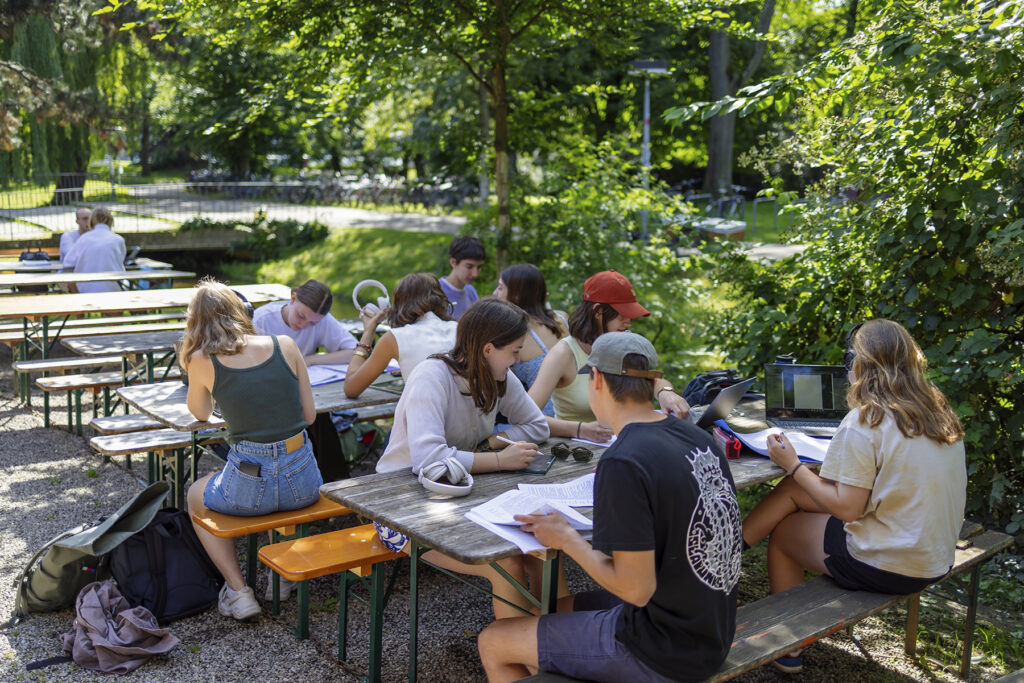Themen für Abschlussarbeiten sind vor allem auf Studierende des MSc Environmental Governance (MEG) zugeschnitten, können jedoch auch von Studierenden anderer Studiengänge – ausreichendes Interesse für die Bearbeitung sozialwissenschaftlicher Fragestellungen vorgesetzt – und begrenzt auch von Bachelor-Studierenden bearbeitet werden.
Bitte kontaktieren Sie die jeweilige Betreuungsperson, wenn Sie sich für eines der folgenden Themen interessieren.
Michael Pregernig
- Knowledge politics for sustainability” – with different possible case studies looking at the way how various types of knowledge are created, tested and deployed in:
- different sectors, incl. biodiversity, food, water, climate, forests, agriculture etc.;
- different politico-cultural contexts at different levels;
- different social sub-systems, incl. social movements, companies, (city) administrations etc.
- “Environmental assessments: Comparison of institutional setups” – with single case studies or a comparison of different assessments (e.g. IPCC, IPBES, IPES Food, IPOS etc.) … with a focus on e.g. the process of validation/review, the role of non-scientific knowledge, interface to politics and society etc.
- “Dynamics in epistemic authority under conditions of uncertainty and ambiguity” – with possible case studies from the field of forest management and governance *) … or any other environmental policy field
- “Epistemic disputes as markers of change in knowledge cultures” – with case studies focusing either on inner-scientific debates and/or on disputes in broader socio-political contexts … in the field of forest management and governance *) … or any other environmental policy field
- “Beyond ‚post-truth‘: Knowledge politics of populist environmental movements” – with single case studies or a comparison of different movement types and/or in different countries
- “Challenges of long-term orientation in sustainability governance” – with case studies e.g. focusing on questions like how anticipatory knowledge is produced and made policy-relevant, how the “future” is framed in public discourse, which actors shape debates on the future etc.
- “Epistemic dynamics in public participation” – with case studies focusing on a specific participation process or on a certain type of participation (e.g. citizens’ councils)
- “Social-ecological systems (SES) as a new research paradigm” – with possible foci on e.g.
- overview of SES frameworks and their disciplinary foundations;
- overview or specific case studies on the integration of the social sciences in SES modelling;
- systematic review on the application of a SES perspective on forests. *)
*) Topics tied to a Cluster of Excellence currently in preparation on “Future Forests – Adapting Complex Social-Ecological Systems to Global Change” (for more information see the University’s webpage on Future Forests)
Philipp Späth
- Hamburg’s [or: Rotterdam’s] role in the hydrogen economy – Mapping and scrutinizing current promises and expectations.
- How to govern the phase-out of the gas distribution network in Hamburg [or: a comparable city]
- The decarbonization of Hamburg’s heating networks. Current challenges to implementation.
- The quick and socially robust decarbonization of (urban) heat infrastructure in Germany – as a challenge to political sciences.
Cristina Espinosa
supervises theses that apply critical, qualitative interpretive methodologies (such as discourse analysis) and are connected to the following topics:
- Environmental citizenship and education for sustainability and peace
- Governance for alternative models of mainstream sustainable development, such as buen vivir
- Knowledge politics in environmental governance
- Rights of nature and world order
- Political representation of non-human nature in different settings, such as courts and legal processes
- SDGS and citizen science
- Science and environmental activism
- Contested natural resource governance, particulary in connection to transition minerals

